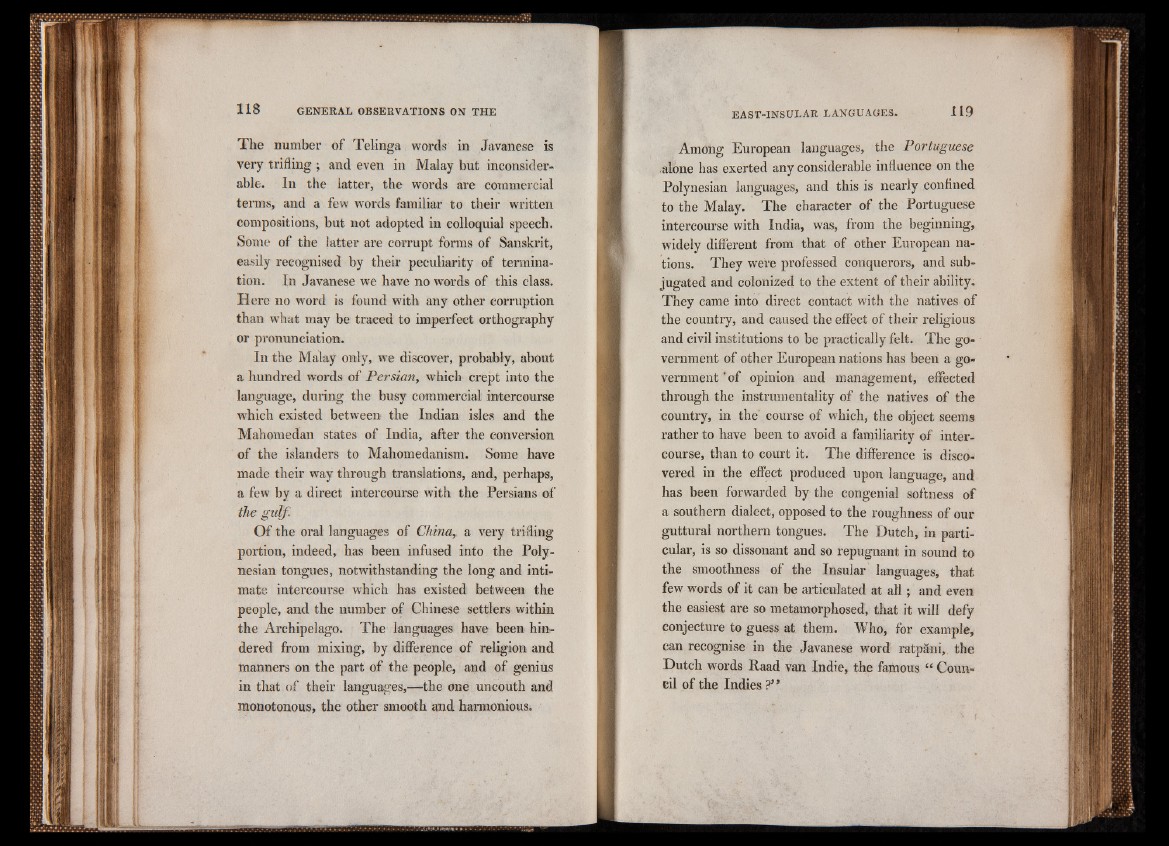
The number of Telinga words in Javanese is
very trifling ; and even in Malay but inconsiderable.
In the latter, the words are commercial
terms, and a few words familiar to their written
compositions, but not adopted in colloquial speech.
Some of the latter are corrupt forms of Sanskrit,
easily recognised by their peculiarity of termination.
In Javanese we have no words of this class.
Here no word is found with any other corruption
than what may be traced to imperfect orthography
or pronunciation.
In the Malay only, we discover, probably, about
a hundred words of Persian, which crept into the
language, during the busy commercial intercourse
which existed between the Indian isles and the
Mahomedan states of India, after the conversion
of the islanders to Mahomedanism. Some have
made their way through translations, and, perhaps,
a few by a direct intercourse with the Persians of
the gulf.
Of the oral languages of China, a very trifling
portion, indeed, has been infused into the Polynesian
tongues, notwithstanding the long and intimate
intercourse which has existed between the
people, and the number of Chinese settlers within
the Archipelago. The languages have been hindered
from mixing, by difference of religion and
manners on the part of the people, and of genius
in that of their languages,—the one uncouth and
monotonous, the other smooth and harmonious.
Among European languages, the Portuguese
alone has exerted any considerable influence on the
Polynesian languages, and this is nearly confined
to the Malay. The character of the Portuguese
intercourse with India, was, from the beginning,
widely different from that of other European nations.
They were professed conquerors, and subjugated
and colonized to the extent of their ability.
They came into direct contact with the natives of
the country, and caused the effect of their religious
and civil institutions to be practically felt. The government
of other European nations has been a government
*of opinion and management, effected
through the instrumentality of the natives of the
country, in the' course of which, the object seems
rather to have been to avoid a familiarity of intercourse,
than to court it. The difference is discovered
in the effect produced upon language, and
has been forwarded by the congenial softness of
a southern dialect, opposed to the roughness of our
guttural northern tongues. The Dutch, in particular,
is so dissonant and so repugnant in sound to
the smoothness of the Insular languages, that
few words of it can be articulated at all ; and even
the easiest are so metamorphosed, that it will defy
conjecture to guess at them. Who, for example,
can recognise in the Javanese word ratpani,, the
Dutch words Raad van Indie, the famous “ Council
of the Indies ?”